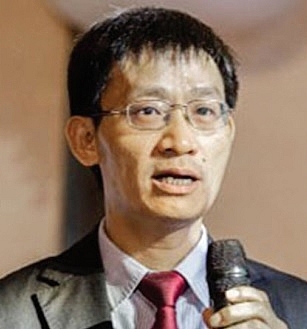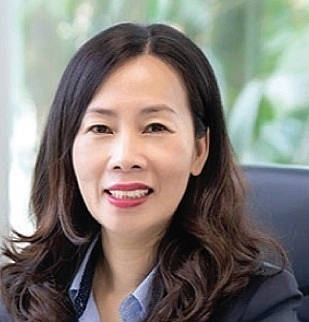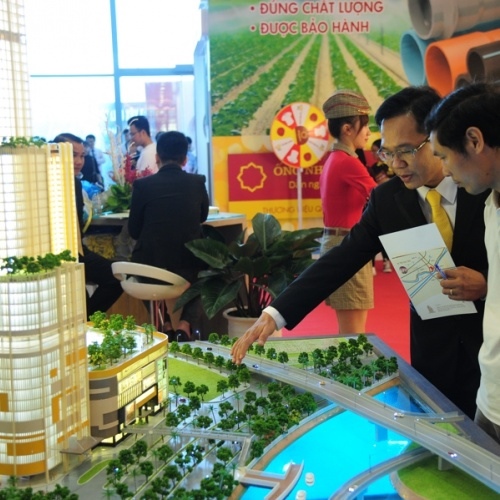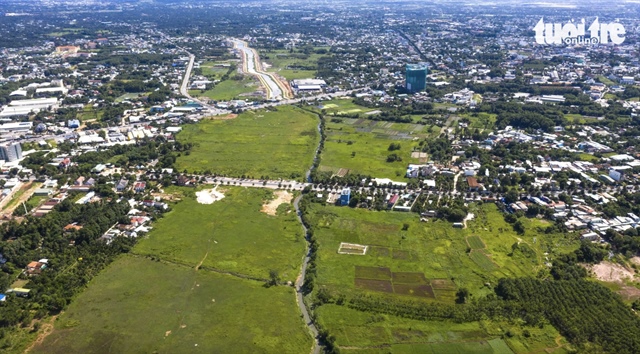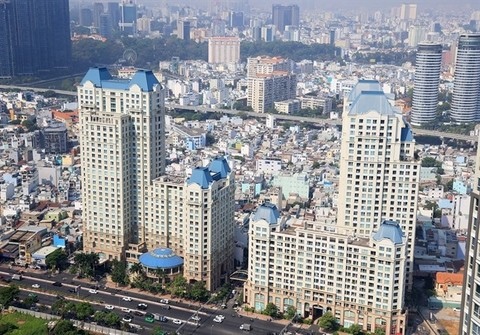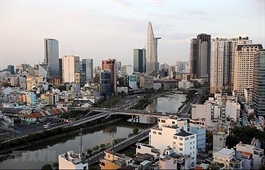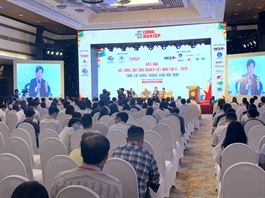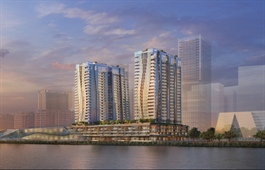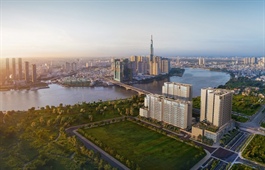Rising lease rates could discourage relocation spirit
Rising lease rates could discourage relocation spirit
An early economic recovery from the global health crisis would bring Vietnam tremendous opportunities to mobilise foreign investment by welcoming relocating multinationals. However, increasing land lease costs could dampen enthusiasm.
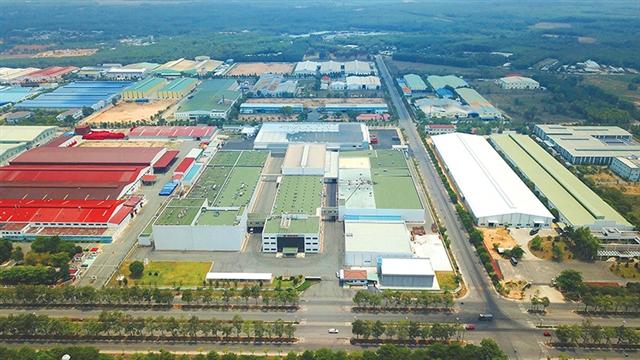
The surging prices for industrial property land is a direct result of the rising demand in recent years, Photo: Le Toan
|
Arriving in Vietnam on a hot summer’s day, Takashi, the director of a Japanese company producing electronic circuit boards, contacted consultants Ecobuy Business and Service Co., Ltd. in Hanoi for support in finding industrial land for lease, and implementing investment procedures.
Ecobuy suggested the director industrial zones (IZs) which meet his requirements from the 30 with which it has agreements with. These include a suitable location within budget and near the partner’s factory, with cheap labour force and access to raw materials, public transportation, and ports. Also required are stable electric power and water, decent tax incentives, and relevant government support.
After exchanging information on price, location, and other factors, Ecobuy and the Japanese firm visited WHA IZ in the central province of Nghe An for a decision and were surprised to learn of a sudden increase in price from $38 per square metre in the offering to $42, for 50 years of leasing.
“In Japan, businesses have to explain and apologise multiple times to customers if they want to increase prices, even a little. But in this IZ, they increase costs whenever they want, without informing partners like the consultancy firm,” said Takashi.
Demand pushes prices
The Vietnamese industrial property market has seen a surge in land and factory leasing inquiries from both existing and new players. Some of the newer free trade agreements like the Comprehensive and Progressive Agreement for Trans-Pacific Partnership and the EU-Vietnam Free Trade Agreement also enable the country to access new prospects to become a new global manufacturing hub.
Manufacturing will continue to shift out of China due to rising costs, the trade conflict with the US, and manufacturers’ strategy of reducing dependence on a single market, especially after COVID-19. As a result, rents and occupancy of industrial parks in major manufacturing cities and provinces have escalated amid limited industrial land supply.
The offering price currently at most IZs has risen around 7.6 per cent in Hanoi and 16 per cent in Ho Chi Minh City due to this increase of demand, according to a report from MB Securities JSC.
In the north of the country, costs range from $110-250 per square metre, while it can be $70-130 in Haiphong and Bac Ninh, or $60-90 in Hai Duong and Hung Yen. In the south, the price ranges between $145 and $300 per sq.m in Ho Chi Minh City, $100-190 in Long An, $70-150 in Binh Duong, $80-160 in Dong Nai, and $40-140 in Ba Ria-Vung Tau, according to CBRE Vietnam.
“The $100 per sq.m, which was deemed expensive, has already risen to $150, which is an unbelievable price,” said Do Nhat Hoang, director general of the Ministry of Planning and Investment’s Foreign Investment Agency (FIA).
Hoang highlighted some IZs which pushed prices too high, including Protrade, Deep C, Nam Dinh Vu, WHA, and Viglacera.
Talking with VIR, David Nardone, group executive, Industrial and International of WHA Industrial Development Plc. said that WHA IZ in Nghe An had the same introductory price for the first three years during the approval, relocation, landfill, and development process. “Now that the first phase is complete and at an excellent infrastructure and environmental standard, the lease is only about 10 per cent higher – a fraction of the price in the congested northern and southern areas that could charge three times our rate,” Nardone said.
Director of Ecobuy Tran Quang Hoi said that price is usually adjusted by the relationship between supply and demand. “If demand enhances too high for supply to meet, the price will be modified, especially in first-tier cities and provinces in the key economic regions in the south and north,” Hoi said. “This is a part of the total investment of every financier, which will surge if land leasin grates escalate. So investors will consider carefully before pouring money into Vietnam or other countries.”
Indeed, Takashi returned to Japan to rethink the investment destination, with FIA director general Hoang claiming that the massive increase of prices in IZs will hamper the country in seizing the opportunities ahead.
Creating success
The increasing rents, limited approvals, and projects under construction at industrial parks pose the question of whether Vietnam can successfully attract foreign investment.
According to Dang Trong Duc, general director of KTG Industrial, a member of Khai Toan Group (KTG), the limited space will be creating difficulties for incoming investors when they move to Vietnam.
“The main competitors to Vietnam, like India and Indonesia, have also been preparing actively for land funds to welcome movement from other countries. The competition is very tough and Vietnam must improve its administrative procedures and investment environment if it wants to win in this campaign,” Duc said.
Hirai Shinji, chief representative of the Japan External Trade Organization in Ho Chi Minh City, also agreed that administrative procedures and transparency were two issues Japanese enterprises are most concerned with when they come to Vietnam.
Other issues are the reduction of incentives (such as personal income tax in economic zones), complicated investment license procedures, fire prevention, a shortage of power, and unclear regulations on power use regulation.
“Moreover, Japanese investors are facing difficulties in understanding the legal framework and are held up by the slow process of infrastructure improvement,” Shinji said.
Regulations on used-equipment imports should be loosened and made more transparent, he added, while the laws on public-private partnerships must be completed to remove all obstacles for investors.
Many warehouse facilities in Vietnam today remain behind the times and they need to be upgraded with advanced and smart technology to meet growing demand from tenants, Shinji explained.
CBRE Vietnam in a press release earlier this month stated the abrupt transition of manufacturing companies to Vietnam will create bottlenecks in industrial property supply.
Investors and developers will not have enough time to provide quality and sufficient properties for coming occupiers because developing a new industrial project will be very time-consuming, especially in terms of legal works.
The statement added that the temporary lack of labour force and low-quality infrastructure network will possibly restrain the growth prospect of the market in the short run.
Confronting the challenges, developers that already have land are encouraged to accelerate the construction of ready-built factories to prepare for expansion opportunities.
|
Tran Quoc Trung - Deputy director general Department of Economic Zones Management, Ministry of Planning and Investment
There are 374 IZs nationwide with the total area of over 114,000ha. Of these, 280 make up 77,000ha and are already in operation, while 75 based over 29,000ha are paying for land clearance. The average occupancy at working IZs is 73.7 per cent. Total foreign capital pouring into IZs in the first half of 2020 decreased a little compared to last year. Due to the global health crisis, there were 335 foreign-invested projects pouring a total of $6 billion into IZs, while these figures were 340 and $8.7 billion in 2019. Additionally, as many as 561 IZs on an area of 201,000ha have been approved to be put into master plans. Of these, 259 will be based on 86,500ha and have yet to be established, capturing 43.1 per cent of total area in master plans. This area is estimated to be enough to welcome the new wave of investment and relocation in the coming years. The Department of Economic Zones Management will perfect the legal framework for IZ development, strengthen management and innovation, and enhance the efficiency of master plans. IZs will become diversified with such types as ecological industrial parks, supporting IZs, associated IZs, and combined models of IZ and urban area services. However, IZ infrastructure will have to be improved synchronously to enhance their performance while policies, mechanisms, and management will be perfected to accelerate the efficiency. David Nardone - Group executive of Industrial and International, WHA Industrial Development
The opportunities in Vietnam are substantial for a host of reasons, including a well-educated labour base, investor-friendly central government and provinces, and improving infrastructure – all with reasonable costs. Thus, WHA is continuing to expand in Vietnam. Companies are relocating a portion of their manufacturing to access the growing markets of Vietnam and its surroundings, as well as an export base. Business coming from China will be significant to Vietnam, considering the differences in the sizes of the economies. WHA has a host of initiatives to attract investors to our locations in Vietnam. This includes tapping into our more than 1,000 customer base from Thailand, 80 per cent of whom are in marketing. Rental rates are a supply and demand issue. In the central province of Nghe An, with a large population and labour base and WHA developing 3,200ha, we will be able to welcome investors for years to come. To improve industrial land access, provinces need to have a one-stop process for developers to apply for the land, environmental, relocation, rental, landfill, and other approvals in a timely and transparent basis. The land acquisition process for IZs need to be streamlined. Provinces need to balance land compensation, relocation, and land rental rates in the context of their overriding investment objectives. Investment leads to economic growth, competitiveness, prosperity, and exports, as well as meaningful employment, and increasingly higher tech and value-added products. Dang Trong Duc - General director, KTG Industrial
Vietnam is highly appreciated as a promising destination for investors to withdraw from China. The country is the portal connecting to the ASEAN, as well as benefiting from free trade agreements. With the relocation, demand steps up, supply and land lessen, changing land leasing fees. This also drives investors to develop infrastructure and gadgets to make their IZs more competitive, and bring new experiences and services to investors. After the pandemic, local businesses should be prepared and willing to catch up with trends and seize opportunities, and industrial property will get hotter via the attention of international investors. Foreseeing this trend, KTG Industrial provides more selection of high-quality factories to welcome foreign investors. Industry 4.0 combines ready-built factory, warehouse, and 4.0 technology to optimise management, performance, environmental protection, and sustainable development. These 4.0 factories are designed to be modern and convenient to help businesses reduce costs. Operators and management will be able to keep their fingers on the pulse through the use of virtual reality tech to view inside KTG Industrial’s factories in real-time, anytime. So KTG Industrial applying 4.0 technology at this time, when Vietnam has just controlled the pandemic and other countries are fighting against it, confirms the efforts of KTG Industrial to support local and foreign businesses to overcome the global crisis and expand business scale. Koen Soenens - General sales and marketing director, DEEP C Industrial Zones
We are aware of the significant jump in rents in industrial real estate. However, the rent of DEEP C’s ready-built factory is based on the market value and driven by market forces such as supply and demand. We have full control of what it takes to run our workshops and warehouses while still striving to create a better experience for our tenants. While anticipating the arrival of new international manufacturers, DEEP C Industrial Zones has continuously rolled out more land suitable for multiple types of industries. So far, we have expanded our land bank to 3500ha stretching over five industrial zones in Haiphong and Quang Ninh. Improvement in services and infrastructure are being carried out as well. DEEP C liquid jetties are being upgraded to cater more clients in our petrochemical zones, along with the energy transition by renewable energy projects. Furthermore, DEEP C has embarked on a new journey towards the digitalisation of industrial properties with smart meter reading and cloud computing. I am confident about Vietnam’s appeal to giant players despite an uplift in rent. More multinational companies have made their way into Vietnam like Foxconn, Pegatron, GoerTek, to name a few. But Vietnam has a lot more to offer: positive macro-economic fundamentals, open economy with easy access to global market, and a competitive labour force. Lam Dieu Tam Hieu - Deputy general director, Kizuna JV JSC
The new EU-Vietnam Free Trade Agreement will greatly contribute to Vietnam’s economic picture and create motivation for post-pandemic recovery. Vietnam’s success with the pandemic will draw in more international companies. This and the foreign capital pouring into manufacturing, will increase demand for industrial property. Foreign investment in the first half declined, however, we believe the decline is only momentary. In addition, Vietnam’s good disease control will be a superior factor compared to India and Indonesia so that foreign investors can access the market, especially in the context of some international routes may be resumed in July. Khanh Nguyen - Senior director of Vietnam Capital Markets, JLL
In recent years, the industrial market has attracted many foreign investors, including newcomers, looking for industrial operating assets and land bank. We also see local real estate developers expanding into the industrial sector. These investors tend to look for logistics land where they can develop ready-built or built-to-suit warehouses and factories to lease out in established industrial areas. With the limited supply, some started to look further out, where the market could be immature, leading to insufficient demand for logistics, or infrastructure could be weak. We expect industrial to remain the hottest real estate sector in Vietnam, with strong demand from foreign investors. |


